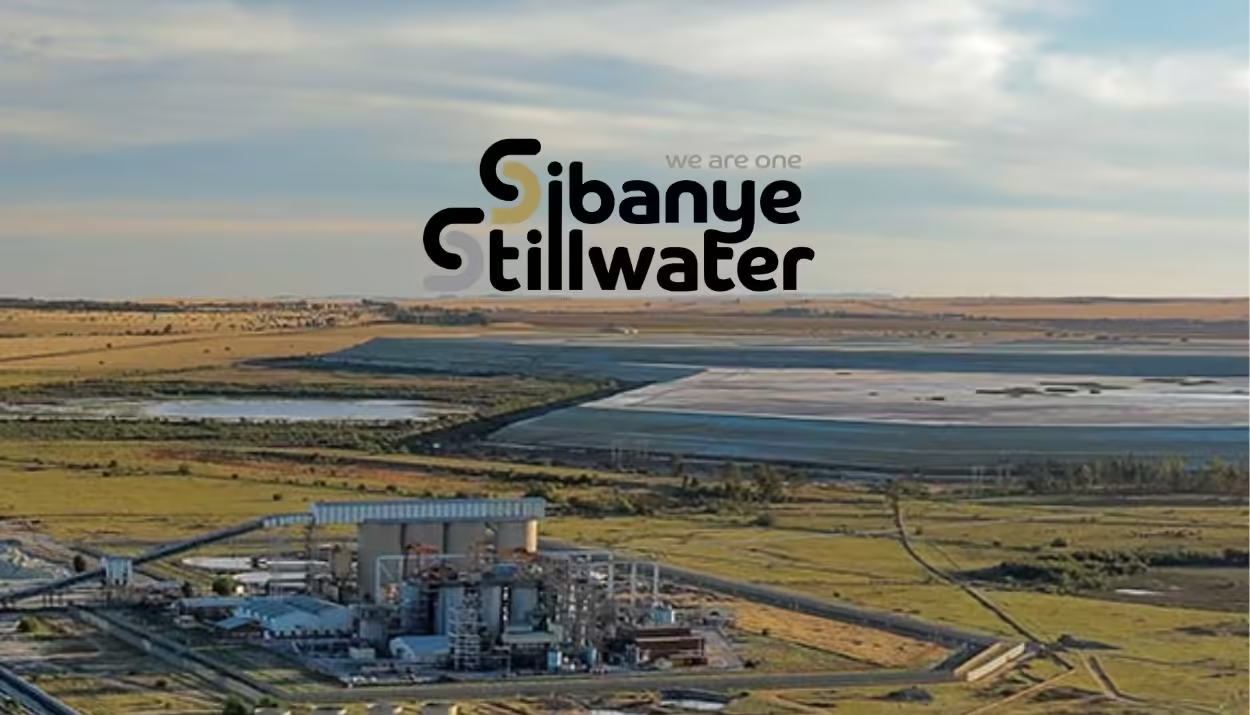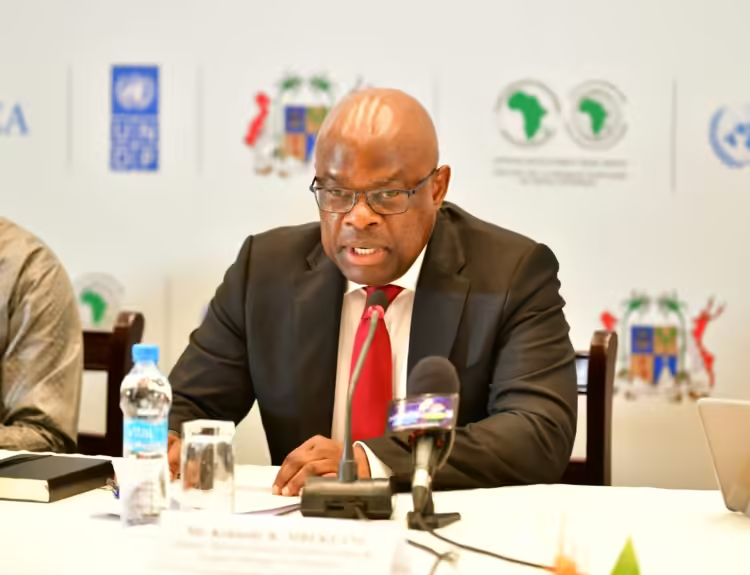South African mining giant Sibanye Stillwater has secured a 1.8 billion rand ($101 million) gold prepayment deal, a lifeline for the company as it grapples with significant financial challenges.
This strategic move is designed to raise cash for loan repayments and stabilize the company’s finances following a sharp decline in platinum group metal (PGM) prices, which have severely impacted its earnings.
The prepayment deal involves Sibanye delivering 1,497 kilograms of gold in equal monthly instalments between October 2024 and November 2026 in exchange for the upfront cash payment.
CEO Neal Froneman described the prepayment deal as a “proactive, strategic financing alternative that improves the group’s liquidity and balance sheet.”
This development comes at a time of considerable struggle for the multinational, which has been navigating financial storms and operational challenges.
Contents
Sibanye Stillwater’s history
Sibanye Stillwater is a multinational mining and metals processing group with a diverse portfolio of operations, projects and investments across five continents. The Group is also one of the foremost global recyclers of PGM autocatalysts and has interests in leading mine tailings retreatment operations.
The multinational is one of the world’s largest primary producers of platinum, palladium, and rhodium and is a top-tier gold producer. It also produces and refines iridium and ruthenium, nickel, chrome, copper and cobalt.
The company’s journey began in 2013 after Gold Fields’ South African gold assets which included the Kloof, Driefontein, and Beatrix mines were unbundled.
The company made its debut on both the Johannesburg and New York stock exchanges later that year. In August, Sibanye acquired Cooke operations from Gold One, a move that solidified its position in the gold mining sector. By the close of 2013, Sibanye’s market capitalization had reached R10 billion (approximately US$1.2 billion), setting the stage for its ambitious expansion.
Since then, Sibanye has expanded aggressively acquiring Wits Gold, Kroondal, Mimosa, Platinum Mile, and Rustenburg operations among many other acquisitions that transformed the company into a multinational conglomerate. The company also ventured into battery metals mining and processing, seeking to diversify its portfolio.
In 2017, Sibanye made its first major foray outside South Africa by acquiring the Stillwater Mining Company in Montana, USA. This move catapulted Sibanye into the global arena, making it the world’s third-largest producer of palladium and platinum. To reflect its diversified portfolio, the company rebranded itself as Sibanye-Stillwater in August 2017.
In 2018, the company acquired a 38.05% stake in DRDGOLD Limited, a world leader in gold tailings retreatment. This acquisition not only expanded Sibanye’s gold production capabilities but also marked its entry into the lucrative tailings retreatment industry. Later that year, Sibanye further broadened its portfolio by acquiring Lonmin PLC, which included the Marikana operations and smelter plants, as well as base and precious metals refineries.
The company’s expansion continued into 2019, with the acquisition of a 50% stake in Kroondal from Anglo American Platinum and full ownership of the Sandouville nickel refinery. By November of that year, Sibanye had increased its stake in Keliber Oy, a lithium project in Finland, to 85%, reflecting its shift towards battery metals.
In 2024, Sibanye completed the acquisition of Reldan, a recycling group focused on processing industrial and electronic waste to recover green precious metals.
Despite this impressive growth trajectory, Sibanye’s journey has not all been smooth. In fact, over the past couple of months, the company has faced several challenges.
Sibanye Stillwater’s recent struggles
In October 2023, Sibanye retrenched 575 employees from its Kloof 4 shaft and cut another 348 employees from other gold operations, a move that also affected 581 contractors.
The decision to downsize came after the company sustained losses at the Kloof 4 operation near Carletonville, one of the world’s deepest mines. Efforts to address productivity issues and other operational constraints, including seismicity and cooling challenges, proved unsuccessful, forcing the company to make difficult decisions to remain viable.
Financial strain and impairments
Earlier this year in February, Sibanye warned of an expected loss for the previous year, driven by slumping PGM prices and operational difficulties across its business. The company took impairments totalling $2.5 billion, a stark contrast to the profit it reported in the previous year.
This loss is expected to translate into a per-share deficit of R12.68 to R14.01, compared to a profit of R6.51 per share the year before.
Some of the impairments are linked to its operations in the United States and the Sandouville nickel refinery in France, which has struggled despite recent improvements.
Cyberattack
The conglomerate’s challenges didn’t end there. In July 2023, Sibanye experienced a cyberattack that affected its IT systems globally, causing short-term operational delays, particularly at its Stillwater mine in the US.
The attack disrupted the smelting of underground concentrate at the Columbus metallurgical complex and impacted the recycling of spent autocatalysts, further straining the company’s operations.
Struggles at Sandouville Nickel Refinery
Adding to the company’s woes, Sibanye on Wednesday, August 21, announced that it would terminate a significant commercial supply contract for its Sandouville nickel refinery. Acquired in 2022 with the aim of producing nickel sulfate for Europe’s growing battery market, the Sandouville refinery has struggled with ongoing losses.
The contract termination, which comes at a cost of $37 million, is part of a broader strategy to transition the refinery towards producing precursor cathode active material (pCAM) for batteries.
Sibanye Stillwater’s leadership
Neal John Froneman has run Sibanye Stillwater since its inception. He was appointed executive director and CEO of Sibanye-Stillwater on 1 January 2013.
Under his leadership, Sibanye has grown from a South Africa-based gold miner into a leading diversified metals producer with an international footprint.
Neal’s career spans nearly 40 years having worked at major mining companies like Gold Fields and Harmony Gold Mining Company.
Additionally, Neal previously held the position of CEO of Gold One International Limited, formerly Aflease Gold. He was responsible for the creation of Uranium One Incorporated (Uranium One) from the Aflease Gold uranium assets. He resigned in 2008.
Neal is also involved in several industry organizations, including the International Council on Mining and Metals (ICMM) and the World Gold Council, where he was appointed chairman in 2023.
What next for Sibanye Stillwater?
Sibanye’s recent gold prepayment deal and the refinancing of Sibanye’s revolving credit facility, which was expanded to 6 billion rand and extended to August 2027, provide some financial breathing room as the company continues to navigate the volatile market.
In addition to the gold prepayment deal, Sibanye announced that it had successfully refinanced and expanded its revolving credit facility with South African lenders. Originally set to mature in November 2024, the 5.5 billion rand facility has been increased to 6 billion rand and extended to August 2027, with an option for a further two-year extension.
This refinancing move provides Sibanye with more favourable terms, enhancing its financial flexibility as it tackles market volatility.
It remains to be seen whether this along with other measures put in place to stabilize the company will bear fruit. The company’s soon-to-be-released financials will paint a picture of the direction the company is headed as well as its reaction to the stabilization measures already implemented since the PGM prices decline.






